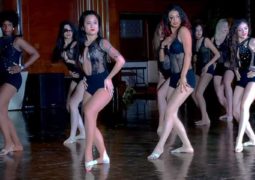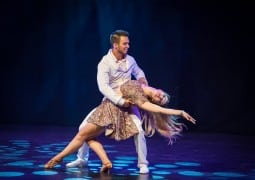Jessica Carro Interviews K-yo in Buzios
Reviews & Interviews
2,733 views
K-yo is a zouk teacher and head organizer for the F.I.E.L Zouk Festival in Brasilia, Brazil.
- Previous Jessica Carro Interviews Paulo Mac at Berg’s Congress 2015
- Next Video: Recap of Kamacho’s Workshop in Boston
You may also like...
Sorry - Comments are closed







